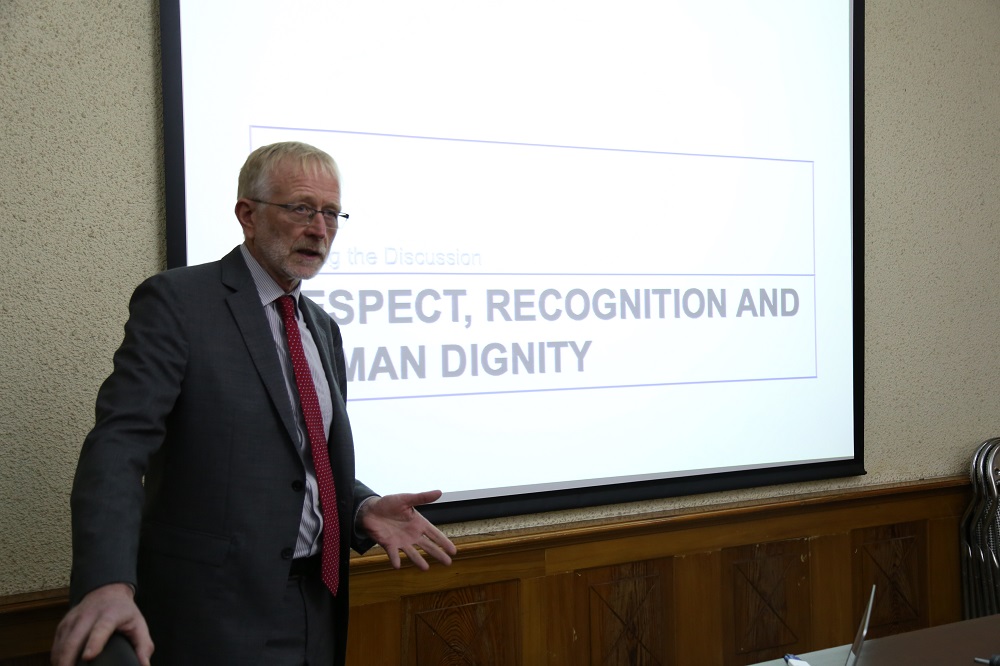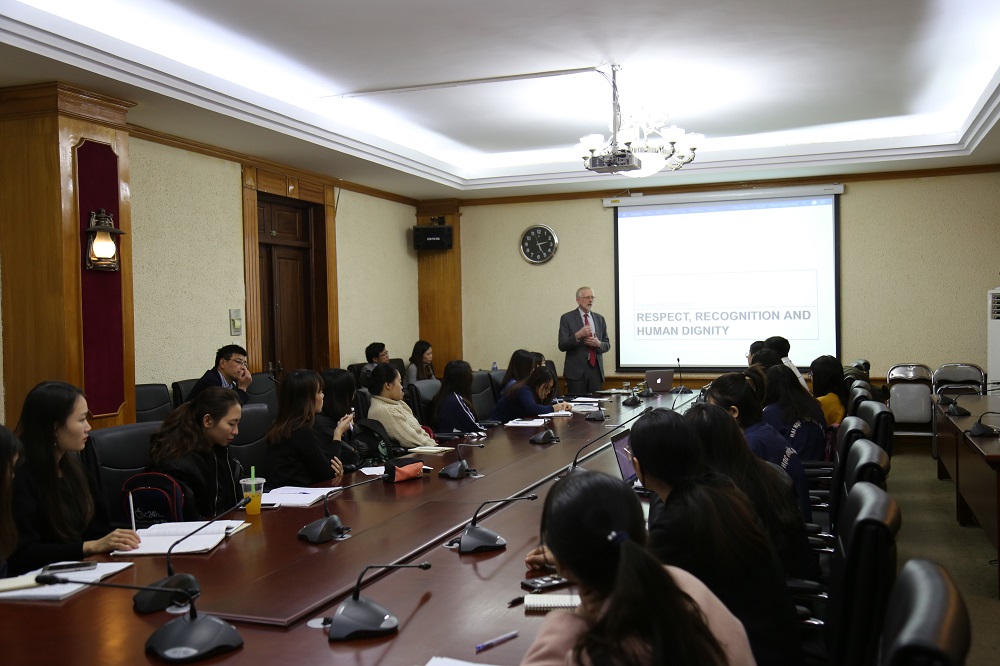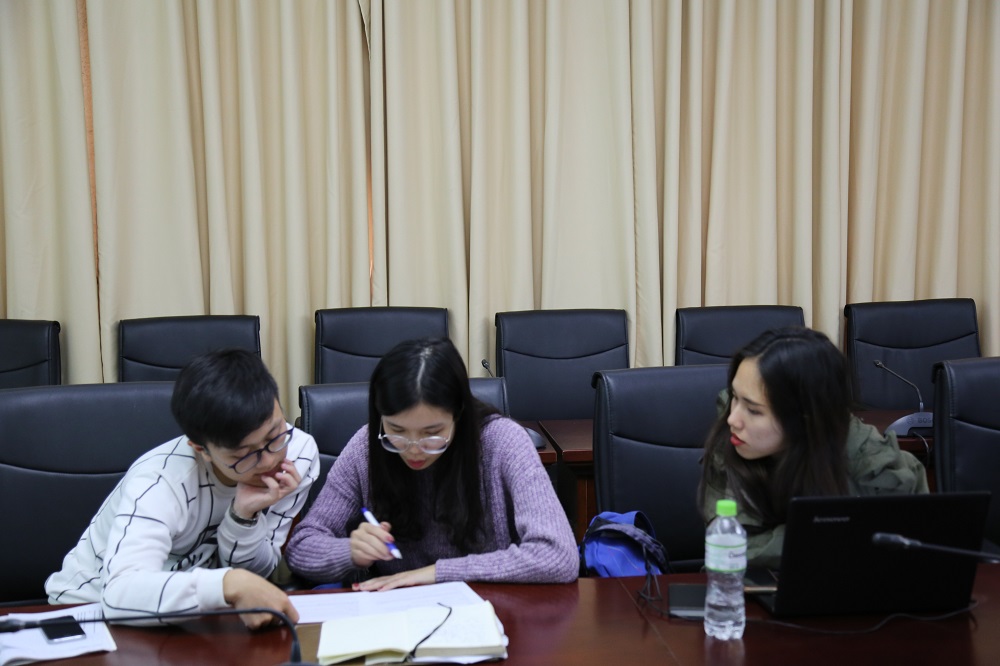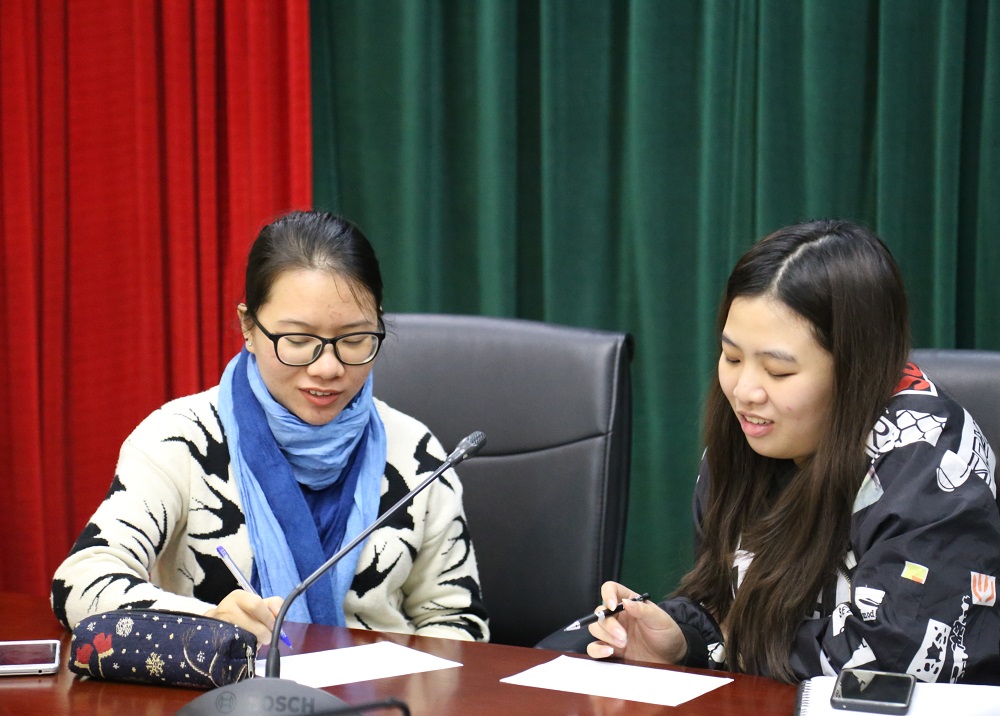At the beginning of his presentation, Dr. Séamus Ó Tuama introduced the concept of “personhood”, which is the state of being of an individual as a human being. According to Robert Kegan, “personhood” is “an activity as well as a thing – a continuous movement to create a new form for itself”. That means, human identity and character are not just fixed and unchanging, but are a process of constant self-change and renewal.

On that basis, Dr. Séamus Ó Tuama argues that human personality is made up of three elements: recognition, respect and dignity. “Dignity” is the individual value system associated with a person, “recognition” is the act of recognizing dignity, and “respect” is the process by which all people express their recognition of each other’s dignity equally.
The first element that Dr. Séamus Ó Tuama delves into is recognition. According to him, mutual recognition in everyday experience contributes to human identity. It helps ensure the quality of life, autonomy and identity of each individual. According to philosophy professor Thomas McCarthy (1990), interdependence requires people to jointly protect the value of each individual, as well as the network of interpersonal relationships through which they form and maintain their identities. Therefore, in a broader perspective, recognition helps create clear, undeniable foundations for human rights.

The concept of human dignity is also a basis for human rights. Regarding this concept, Dr. Séamus Ó Tuama refers to the experience of migrants to Europe during World War I and II from the perspective of German philosopher Hannah Arendt. Accordingly, migrants often fall into a stateless situation and do not enjoy the same rights as citizens of the host country. For example, their freedom of speech is not respected because no one cares about what they say. Therefore, over time, human dignity has been legalized as rights in legal documents. Today, laws against discrimination on the basis of religion, ethnicity, race, status, gender, etc. are enacted in many countries. For example, Dr. Séamus Ó Tuam's country of Ireland was the first country to legalize same-sex marriage in 2015.

Nguyen Thi Quynh Anh (K60, Faculty of International Studies) shares her experience of being treated disrespectfully.
Regarding respect, Dr. Séamus Ó Tuama presents the views of psychologist D. Miller (2001). Accordingly, personal respect includes three elements: 'voice', which is the ability to speak up or explain to protect oneself; 'interpersonal sensitivity', which is the right to be 'treated politely and properly'; 'accountability', which is the right to be asked to explain actions and decisions that directly affect oneself. Notably, an individual can feel disrespected without necessarily expressing it in words. According to Dr. Séamus Ó Tuama, one of the best ways to understand the meaning of respect is to observe and identify situations and behaviors that are disrespectful.
To illustrate the presentation, Dr. Séamus Ó Tuama guided the International students to do two pair-based exercises. In the first exercise, the students recounted a situation where they were treated disrespectfully, the impact on their personal feelings, and how they reacted. In the second exercise, they shared a situation where they witnessed someone else being treated disrespectfully. Through the exercises, the students drew their own lessons and conclusions about mutual respect in everyday life.


Students do the exercise in pairs.
Dr Séamus Ó Tuama is Director of the Centre for Continuing Adult Education at University College Cork (UCC). He received his PhD in Sociology from the National University of Ireland, Cork in 1999. He is also a senior lecturer in political science in the Faculty of Government, UCC. His current research interests include theories of respect, recognition, dignity and rights in the field of adult education. He is also interested in topics such as democracy, the social contexts of science, technology and law.
Author:Tran Minh
Newer news
Older news